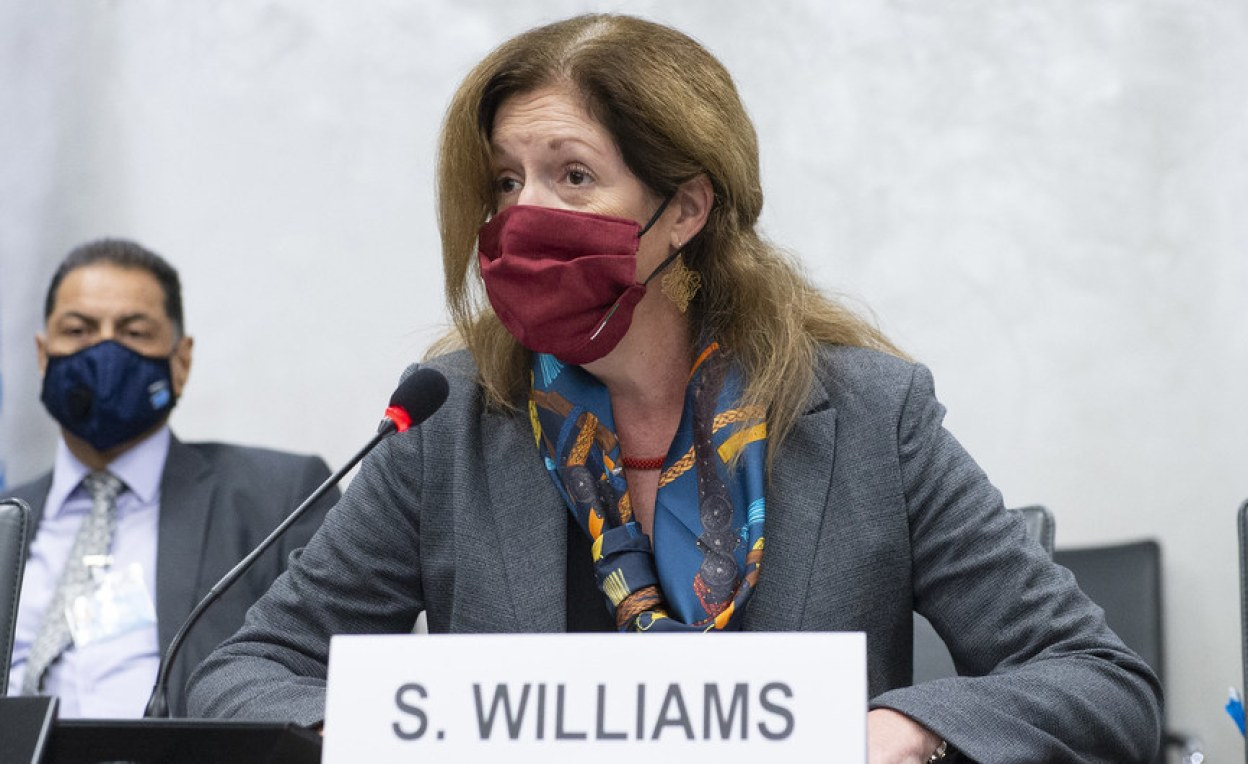A militia blockade of the interim government’s headquarters in Tripoli appears to have ended Thursday, amid strong tensions in the Libyan capital just over a week before scheduled presidential elections. U.N. envoy Stephanie Williams met with key military leaders to try to prevent any violence which might jeopardize the elections.
U.N. special envoy to Libya Stephanie Williams met with rival political and military forces from eastern and western Libya in the port city of Sirte Thursday afternoon, hours after an Islamist militia group ended its siege of interim government headquarters in the capital Tripoli.
Tensions reportedly remain high in Tripoli just over a week before scheduled presidential elections.
Islamist militia commander Salah Badie issued a video statement late Wednesday threatening to scuttle the planned December 24 election and claiming that he will throw U.N. envoy Williams out of Libya.
The head of Libya’s High National Election Commission, Emad al Sayah, told journalists several days ago that preparations for the election are continuing on schedule.
He said that he affirms to the Libyan people and political leaders that his committee will not ignore its obligation to hold free and fair elections, respecting the rights of all parties involved.
Saudi-owned al Arabiya TV, however, reported that another member of the commission called the December 24 election date “wishful thinking.”
Libya analyst Aya Burweila tells VOA that “fair elections are possible provided that candidates who violate the U.N. Roadmap and the electoral law…..are removed from the list of candidates and foreign monitors are sent to polling stations to minimize the appetite of militia cartels in Tripoli who are hostile to elections.”
One former U.N. Libya envoy, Lebanon’s Tarek al Mitri, told Arab media that the “only way to stabilize Libya is to dismantle the militias causing havoc in the country.”
Burweila agrees, arguing that such militias are likely to “attack and intimidate voters.” Libyans, she adds, “are fed up and determined to exercise their basic right to choose their own government and take their country back after seven years of foreign-appointed rule and militia occupation….”
However, Libyan analyst Ezzedin Naguil told Al Arabiya TV that he thinks “both Russia and Turkey are unlikely to remove their militia forces from Libya until they achieve their strategic goals, which will likely involve tough international negotiations.”
The leaders of two of Libya’s closest neighbors, Algerian President Abdel Mejid Tebboune and Tunisian President Qais Saeed, met Wednesday to encourage Libyans to vote.
Tebboune insisted that it is up to the people to decide their fate.
He says that the solution in Libya is in the hands of the Libyan people and they must get rid of mercenaries and foreign forces and deal with each other.
Libya’s parliament is due to meet in the eastern city of Beida early next week to make a final decision on whether to hold the election as scheduled.

